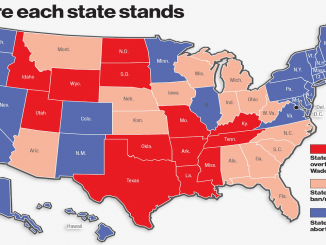
Argentinian women won a monumental victory on December 30, 2020, making their country the 4th and largest in Latin America to give women a legal right to choose an abortion.
For thirty-five years, women have fought for the right to a legal abortion in Argentina, but this fight took a huge leap after 2015, with the emergence of a grassroots movement of young women (#niunamas) who took their voices into the streets in more and more massive numbers. Their voices reframed the conversation regarding morality. They pushed back against the repressive sermons of the Catholic and evangelical churches. This movement, known as the “Green Wave” or “Ola Verde” in Spanish for the green colors and handkerchiefs that are worn by the protesters, achieved a resounding victory that is ricocheting across Latin America, where the Green Wave continues to grow.
The slogan “ni una menos” – or “not one woman less” in Spanish – emerged as a grassroots organizing movement and a hashtag in 2015 expressing the outrage over the killing of women and began focusing its message on the horror of underground abortions along with the assaults, rapes and killings of women. Its starting point was a protest organized in Argentina after the murder of 14-year-old Chiara Paez, who was found buried underneath her boyfriend’s house, beaten to death, and pregnant.
Many may say that it is the election of more progressive legislators that brought about this change, but it was the very same legislators and parties that two years ago opposed such abortion rights in the Senate, siding with the reactionary clergy in Argentina. They were led to change their positions, as public opinion was massively swayed by the power of the movement in the streets. Activists have fought for a morality that considers the fact that at least 350,000 illegal abortions are performed in Argentina every year, with terrible consequences for women and many deaths. Along with this is the understanding that wealthy women have always had the means to access contraception and safe abortion. The morality that the clergy defends is a false one that respects neither the lives of living children nor their mothers, but rather the men who can take advantage of the precarious economic and social circumstances working-class and impoverished women face.
What can we in the U.S. learn as we lose abortion rights in state after state? The latest blow came in Ohio, where Gov. Mike DeWine signed Senate Bill 27 into law at the end of 2020, which puts the burden of paying for the burial or cremation of fetal remains from a surgical abortion on the patient or provider, and creates a literal public record of women who have the procedure.
We can learn that in these times of pandemic, with unemployment, breadlines, a huge increase in poverty, and terrible access to healthcare, when you fight in the streets, with massive amounts of people, and reframe of what is right and what is wrong, you can win – you can bust down doors that seemed unassailable.
The Catholic and evangelical churches play a huge role in Latin America as they do in the U.S., brow-beating women into being tied to the home, with primary responsibility for raising children, and shaming them should they think of controlling their reproduction with any contraception, never mind through abortion. They are tightly linked to the political parties of the bosses, who benefit from subservience and vulnerability of their workforce.
Instead of bemoaning the appointment of reactionary Supreme Court justices, we need to understand the power we have to fight for a morality that protects the lives of women, physically – from assault and abuse, as well as economically – allowing them to have full lives and putting women in a position to choose to care for themselves and their children. Our power is in our organizing and in the streets, not in the hands of the politicians.




